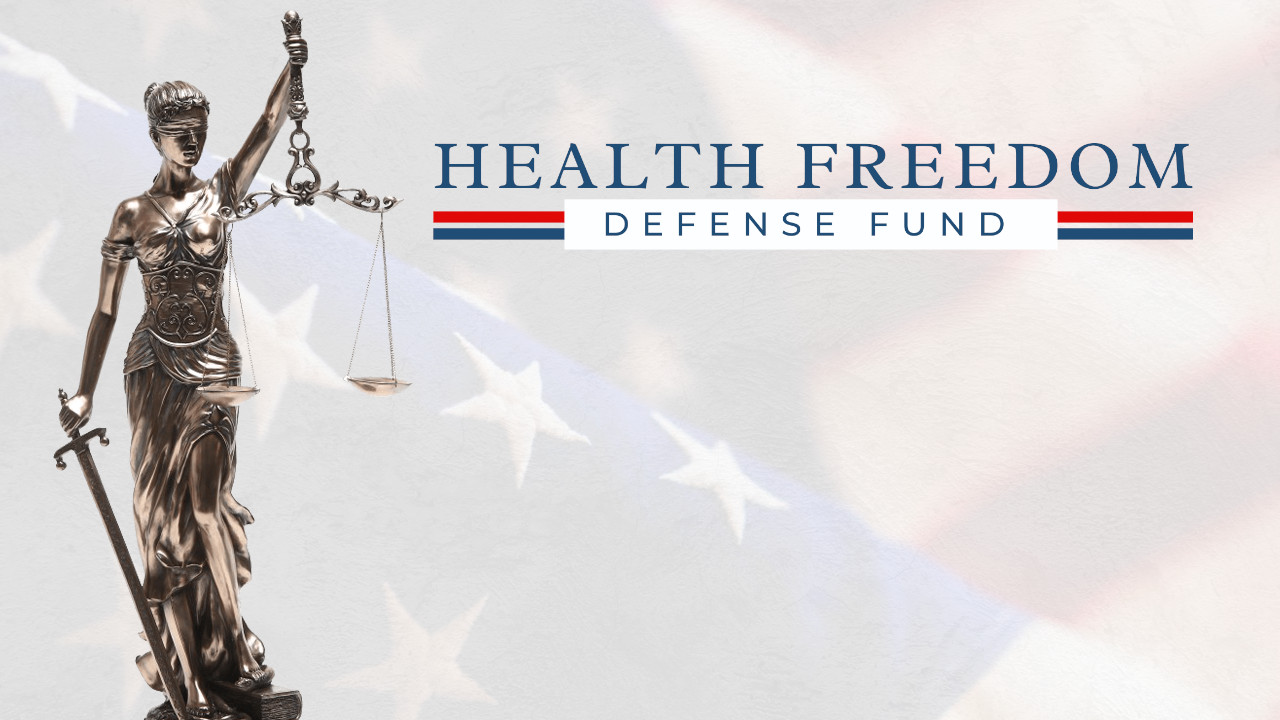
Health Freedom Defense fund stands firmly and unambiguously against forced medicine, whether such treatment is alleged to be preventive or curative. As the American people, and particularly parents of young children, also increasingly turn against forced medicine and mandates, there will be a fierce institutional and legal response to preserve the existing system. Increasingly, those reactions from some state governments and local authorities are hasty and ill-conceived as legal options narrow, and some are now even desperately pulling at the threads of the dubious utilitarian arguments that constitute the cocoon of legal exceptionalism enjoyed by vaccines in the United States for well over a century. This was the case on July 31, 2025, when the Ninth Circuit ruled against Health Freedom Defense Fund and our co-plaintiffs.[i]
There are two critical threads that the court just inadvertently tugged on in its terrible ruling; first, the definition of vaccination as a unique tool of medical practice, and second, the erroneous concept of public health as a separate category that obviates individual rights to refuse treatment due to its putative protective effect for others.
According to Judge Bennett's majority opinion, the basic legal requirement for an authority to require forced medical mandates under Supreme Court precedent turns on what they "could have rationally concluded about whether a vaccine protects the public’s health and safety, not whether a vaccine actually provides immunity to or prevents transmission of a disease.”[ii] So in a single sentence, by obfuscating the commonly-understood definition of "public health" and rewriting the common understanding of the function and definition of a vaccine, the ruling has seemingly extended the tremendous legal defenses disgracefully afforded to vaccines—to all medicines, or even to measures that might be "rationally concluded" to "protect the public's health and safety" by an "executive decisionmaker" at any public institutional level (the case in question involved a school district).
In this ruling, instead of admitting that mRNA injections were erroneously categorized as vaccines and thereby preserving the overall system of forced vaccinations (a shrewd tactical choice made by the three-judge panel that preceded this ruling), or defending the effectiveness of the flawed mRNA injections (a hopeless task), the Ninth Circuit majority have instead endangered the carefully-constructed conceptual framework of public health as an exceptional practical or legal category, all in order to preserve local mandate authority. It achieved this through refutation or obfuscation of terminology, and clear misinterpretation of already-disgraceful Supreme Court precedent found in Jacobson vs Massachusetts.
A Long Road to Meaninglessness
Before this legal news, the erosion of meaning for both "vaccination" and "vaccine" has been underway quietly for years at federal agencies. The reasons for this are clear and untoward—thanks to legal protections, it is an economically attractive category for pharmaceutical products to fall under—it exempts the manufacturer from liability and lowers regulatory, pre-licensure testing, and inspection standards considerably. The definition of vaccine in a legal sense was already ambiguous and notably undefined in legislation. Deepening this confusion, over the last decade, the CDC changed its public definition of vaccine every few years, allegedly to provide a better definition for the public, but functionally it served to allow for ever more products' entry onto its vaccination schedule.
These changes accelerated one week before the Biden administration announced sweeping covid-19 injection mandates for over 100 million Americans. Internal emails in late August of 2021 show that CDC leadership knew that due to the unknowns and limitations inherent in the covid-19 injection platform, they would need to change the definition to fit the new product. The CDC’s Lead Health Communication Specialist stated plainly, "I need to update this page [Immunization Basics | CDC] since these definitions are outdated and being used by some to say COVID-19 vaccines are not vaccines per CDC’s own definition." She followed up a week later, prompting her colleagues to act with more urgent language: "The definition of vaccine we have posted is problematic and people are using it to claim the COVID-19 vaccine is not a vaccine based on our own definition."[iii] [Emphasis added.]
Indeed, the CDC loosened the definition before mandates began a week later. According to the changes to the CDC information page, "vaccination" merely meant introducing a preparation that allegedly "produced protection" to a disease, rather than a product that allegedly "produced immunity" as it had been defined previously. A vaccine, according to CDC, suddenly only "stimulated the immune system" rather than "producing immunity" to a disease.
By further compounding this strategic ambiguity, and gutting the already-fraught definition of a vaccine in this ruling, the Ninth Circuit has now opened up Pandora's box from the perspective of the public health establishment, which is eager to retain its unconstitutional powers to force citizens to take medicines under duress and coercion. Under its current misinterpretation of Supreme Court precedent, a vaccine is largely indistinguishable from hundreds of other medicines or preventive treatments, as all medicines by virtue of FDA approval must claim to provide "protection" to some disease, and many involve host immune modulation or some form of detectable immune response.
All of the legal immunity, liability protections, lower manufacturing standards, and fewer safety requirements provided for vaccines could soon extend to many more areas of preventive or even immunotherapeutic medicine—and given the potential for profit and loosening of definitions, likely they will. It is surely a troubling moment for those that believe in bodily autonomy, increased safety standards, and open scientific discourse.
A Tactical Victory, a Strategic Blunder
HFDF firmly opposes the ruling from the Ninth Circuit in the strongest terms, and is working toward a future where no medicine or vaccine, regardless of its claimed benefits, can be forced upon anyone.
While this may seem like an unambiguous victory for the public health establishment, the seeds of its future defeat may have been planted by this ruling. In the longer term, by arguing that under Supreme Court precedent, mandated vaccines need not by definition prevent transmission or infection, the Ninth Circuit has largely erased the line between vaccines and regular medicines, and in so doing has seriously undermined the oft-stated, and in our view unfounded, need for special legal consideration for vaccines.
The public may ask—if vaccines don't necessarily prevent transmission or infection of a disease, what in fact are vaccines, other than drugs one can be compelled to take and for which the manufacturer cannot be sued for injury?
Additionally, by arguing that under a public health framework, mandates may apply as a tool for medicines that need not protect others but only allegedly provide individual benefits, the Ninth Circuit have stretched the applicability of mandates to a point of absurdity. If this approach stands, the public will increasingly turn against the idea of forced medicine even more than it already has.
In its obvious misinterpretation of the egregiously flawed Jacobson vs Massachusetts, the Ninth Circuit Court has undercut the public health establishment's weakening ability to hold up vaccination and public health as unique concepts and practices that are distinct and shielded from accountability or scrutiny. As these threads slowly unravel, challenges abound. Even as new leadership at the top of the federal health bureaucracies work to respond to the public's concerns and initiate reforms, rulings like this still stymie that progress in the short term. At the local school board, county health offices, or state health bodies, the standards have just dropped precipitously in terms of how these bodies may legally (and in HFDF's view, immorally and unjustifiably) try to push for a medical mandate, thanks to this recent ruling.
But the general public needed something resembling a cogent conceptual framework to tolerate the authoritarian system as it was, and the excesses of the covid-19 response in recent years have jarred the public into paying greater attention to so-called "public health". The more these rulings and others like them are cynically used by corporations and public health authorities to grow their profits and power, and as the public hears more medical treatments called "vaccines" being mandated or exempted from normal oversight, the more the public will resent it. And the more the government, local authorities, schools, or employers impose pernicious public health mandates for individual health choices as well as alleged public benefit, the likeliest outcome is that the public will eventually reject the entire program of forced medicine. HFDF looks forward to the day that the American public asserts its unassailable right to control its medical choices, and that is in turn reflected in policy and law—the core tenants of the organization's mission.
[i] https://healthfreedomdefense.org/the-ninth-circuit-rules-court-sanctioned-authoritarianism/
[ii] Health Freedom Defense Fund et al. v. Megan K. Reilly et al., July 31, 2025 ruling, vacating 3-judge Ninth District panel decision.
[iii] https://web.archive.org/web/20211103143217/https://www.zerohedge.com/covid-19/foiad-cdc-emails-our-definition-vaccine-problematic














